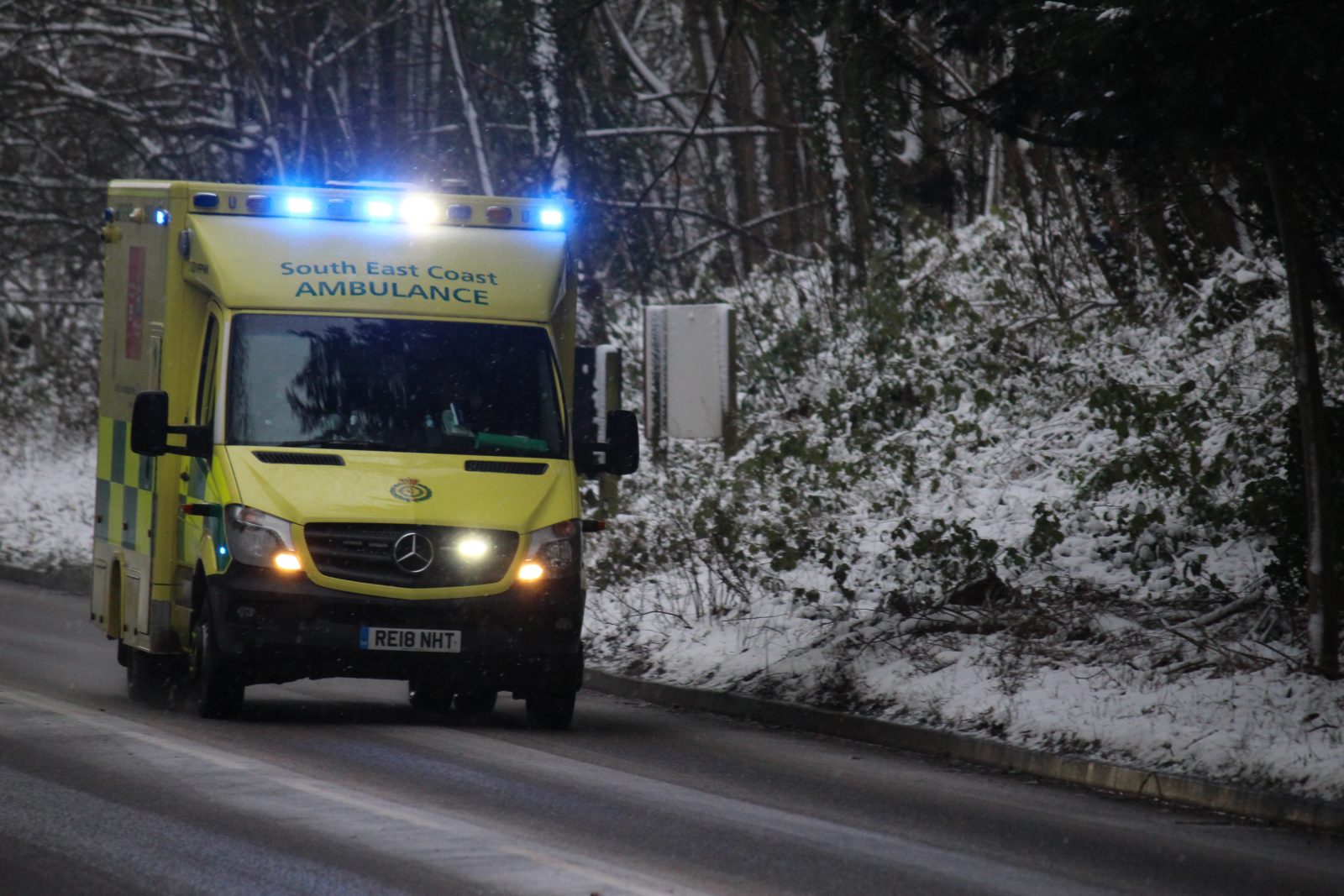
With just one final weekend before Christmas, South East Coast Ambulance Service NHS Foundation Trust, (SECAmb), is urging people to plan ahead and follow some simple advice to keep themselves and others safe.
SECAmb is facing currently facing significant pressure on both its 999 and 111 services and in the two-week period last year, (20 December 2021 – 2 January 2022), answered close to 35,000 999 calls – an average of approximately 2,500 calls each day.
Demand typically increases across bank holiday weekends and last year the Trust answered close to a thousand 999 calls in the seven hours from 8pm on New Year’s Eve.
The public can help SECAmb manage the additional pressure by only calling 999 in an emergency (see ‘When to call 999’ below) and making use of alternatives when it’s not as serious, including visiting NHS 111 Online at 111.nhs.uk for help and advice.
SECAmb Executive Director or Operations, Emma Williams, said: “We have experienced pressure on our services for many months now. The last week in particular has been particularly challenging. We know that this isn’t going to ease in the coming weeks with Christmas, New Year and further periods of colder weather all bringing additional pressure.
“I would like to thank every member of staff and all our volunteers for everything they are doing to keep people safe now and in the coming weeks.
“Whatever the reason for the pressure we and the wider NHS is facing, our ask of the public remains the same – please only call 999 in an emergency – and remember to make use of alternatives when it’s less serious.
“This might include visiting NHS 111 Online for help and advice, speaking to a GP or pharmacist or calling 111.
“As we move towards Christmas, we ask that people remember the impact their actions, such as drinking alcohol to excess, can have, including an ambulance having to be sent to an avoidable emergency.
“We’d also ask that people order any required repeat prescriptions well ahead of the Christmas and New Year bank holiday weekends, ensuring household medicine cabinets are stocked and in date.”
SECAmb has drawn up a list of winter tips to keep people safer in the colder months.
SECAmb winter tips
- Take up the opportunity for flu and COVID-19 booster vaccinations when offered to protect yourself and others.
- Look out for any vulnerable family or friends – is there anything you can do to help them? Are there any hazards in their homes? Do their slippers need replacing? We attend falls to older and vulnerable people all year round
- Wear appropriate shoes when outside especially during icy weather. We typically see an increase in slips and trips during colder spells
- Heat homes to at least 18C (65F). You might prefer your main living room to be slightly warmer
- Keep your bedroom at 18C all night if you can – and reduce drafts – if you’re under 65, healthy and active, you can safely have your home cooler than 18C, as long as you’re comfortable
- Keep active when you’re indoors. Try not to sit still for more than an hour or so
- Wear several layers of light clothes. They trap warm air better than one bulky layer
- Check your home medicines cabinet – is everything in date? Restock with essentials including cold remedies, pain killers, indigestion tablets and diarrhoea and constipation remedies
- Keep up to date with any repeat prescriptions you or your family or friends need
- When was the last time your vehicle was serviced? If your car is safer, so are you
- Carry some useful items in your vehicles such as a blanket and a spade for colder and possible snowy weather
- Wear bright colours at night. Can you be clearly seen as a pedestrian or cyclist? If walking at dusk or at night use a torch
- You should only call 999 in the event of a life-threatening or serious emergency
- People who are not facing a serious emergency should make alternative arrangements such seeking advice from a GP or pharmacist so we can focus on those who need us most. If its urgent but not an emergency you can call NHS 111 or seek advice from 111 online at 111.nhs.uk
When to call 999:
If you think a patient is suffering from one of the following you must dial 999 for an ambulance:
- heart attack (e.g. chest pain for more than 15 minutes)
• sudden unexplained shortness of breath
• heavy bleeding
• unconsciousness (even if the patient has regained consciousness)
• traumatic back/spinal/neck pain
You should also call for an ambulance if:
- you think the patient’s illness or injury is life-threatening
• you think the illness or injury may become worse, or even life-threatening on the way to the hospital
• the patient needs the skills or equipment of the ambulance service and its personnel
